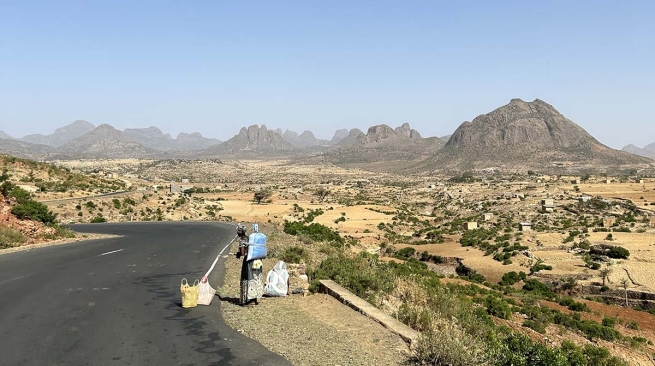The goal is not only to plant trees, but to help the soil regenerate, conserve water, preserve habitats for local fauna and develop rules and criteria for proper management. The entire Eritrean population is called to participate in this initiative promoted by the local government: high school students, local communities, adults and the elderly. Several local communities have started projects aimed at protecting the environment.
The government's goal is to reach 10% reforestation by 2027 across the country. From the initial 200,000 hectares it has reached 615,000: recently Eritrea has become part of the “Great Green Wall”, initiative to plant trees on the borders of the Sahara and prevent desertification. A project that involves local communities in the management of the area. The “Great Green Wall” will serve to stop the emission of 250 million tons of CO2.
The Salesians, with the support of the International Volunteer for Development (VIS), are also committed to participating in the country's reforestation process, to guarantee local communities the right to live in a healthy and sustainable environment. The care of creation is one of the commitments that the Rector Major periodically reminds the entire Salesian Family.
A recent grant to VIS from the headquarters of the Italian Agency for Development Cooperation (AICS) in Khartoum will allow reforestation of one hectare of land in the Dekemhare area with 2,000 native trees. The preferred stock is eucalyptus, but olive trees, pines, acacias and other local plants will also be planted. The initiative has also been disseminated among private donors, so that the reforested area can be increasingly extended and the benefits extended to the entire local population.
The project carried out by the VIS and the Salesians involves the involvement of 40 women selected from among those living in vulnerable conditions, unemployed and/or single women leading the family, victims of violence and discrimination. Each woman, after signing an employment contract with the Salesians, will receive basic training for environmental care, gardening and re-/afforestation activities and will receive tools and other useful materials to work with.
The women will be paid for their work. The project, in fact, in addition to the urgent care of the local environment subject to desertification, also seeks to restore dignity to women, allowing them to work and be able to ensure the satisfaction of basic needs for themselves and for their children.
This type of activity produces several positive effects:
– families headed by single women are able to meet their basic needs;
– the action provides lonely and vulnerable women with greater self-esteem and promotes a culture of work;
– it increases the area covered by afforestation actions, increases the survival of planted trees and improves environmental sustainability;
– contributes to the fight against desertification and climate change.
For more information and to support the project contact vis@volint.it


